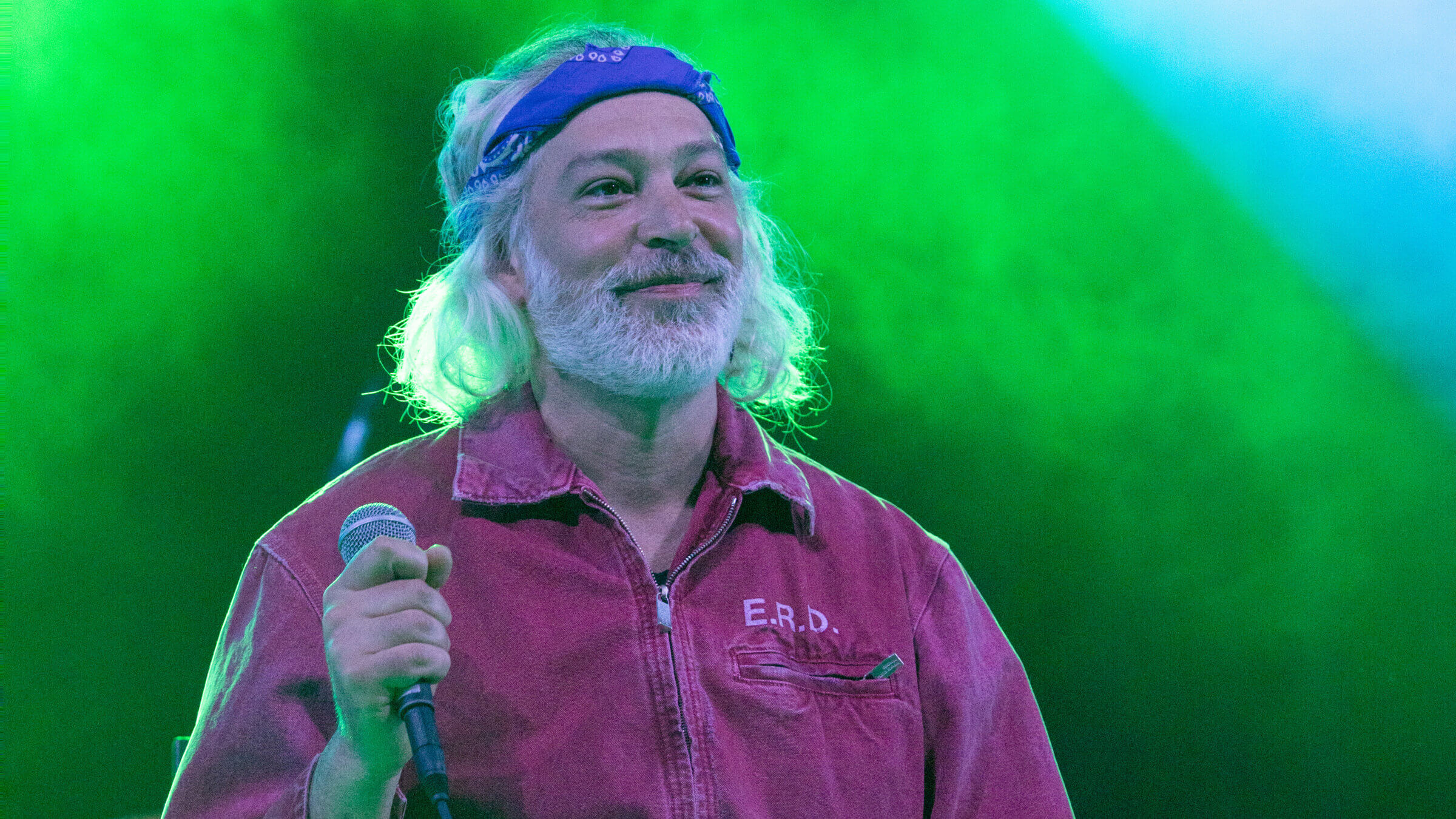Matisyahu claims venues canceled his shows due to antisemitism
After the staffs in Santa Fe and Tucson refused to work his show, the venues attributed the cancellations to ‘security concerns’

Matisyahu in concert. Photo by Rick Kern/Getty Images
Matisyahu, the Grammy-nominated reggae artist who has made Judaism a central theme of his music, said Thursday that consecutive venues have canceled his shows because members of their respective staffs refused to work his concerts.
Matisyahu blamed the cancellations on antisemitism. The venues said they were due to “safety concerns.”
“They do this because they are either antisemitic or have confused their empathy for the Palestinian people with hatred for someone like me who holds empathy for both Israelis and Palestinians,” Matisyahu wrote on Instagram and X Thursday. “It truly is a sad day when dialogue with those you disagree with is abandoned for hate mongering and silencing artistic expression.”
The venues involved were Meow Wolf in Santa Fe, which Matisyahu said he had sold out for Wednesday night, and the Rialto Theatre in Tucson, Arizona, where he was slated to play on Thursday. Matisyahu said he had offered to pay security for the Rialto, but they rejected the offer.
The Rialto Theatre said in a statement that the decision “was not made out of politics or religion,” but of safety.
“The temperature of the day changed, and the tone was not set by us,” Cathy Rivers, the venue’s executive director, wrote in an email, adding that Matisyahu — who has performed at the Rialto several times before — was paid in full for the canceled show.
Rivers sent an additional statement Friday elaborating on the safety concerns, saying they initially were raised by Matisyahu’s team around online threats directed at his tour and that the venue responded by staffing up, only for that staff to call out of work due to their safety concerns. Simultaneously, Rivers said, a local private security firm called the venue and said Matisyahu had contacted them for additional security, but it wanted to send armed guards, which is against the venue’s policy. At that point the venue decided to cancel the show.
Rivers said that as a Jew, she was “deeply saddened and offended” by the public’s accusations of antisemitism as the cause for the canceled show.
“To learn that my decision to de-escalate a perceived security risk to a performer, our staff, and our customers was met with vitriol by our own community is heartbreaking,” she wrote.
She added, “I see now that I should have been more forthcoming in The Rialto’s initial statement to the community and ticket holders prior to the Matisyahu concert cancelation.”
“As a member of the Jewish community myself…I am deeply saddened and offended by the public’s accusations of antisemitism as the cause for the Matisyahu concert cancelation.”
Updated statement from Cathy Rivers, executive director of Tucson’s Rialto Theatre: pic.twitter.com/zvZNv4slO4
— Louis Keene (@thislouis) February 17, 2024
Meow Wolf also said it was refunding ticket holders Thursday.
“Two hours before the show was set to begin, we found ourselves without adequate staff to safely manage the sold out crowd,” the Santa Fe venue wrote in an email. “Meow Wolf will always prioritize the safety of our employees and our guests.”
The artist, best known for songs like “One Day” and “King Without A Crown,” said that his band had sold out Meow Wolf, a Santa Fe venue, for Wednesday, and that the venue abruptly told ticket holders Wednesday that the show was canceled due to security concerns “without our permission or approval.” But the only concern, Matisyahu said, “was a group of staff unwilling to work my show.”
— Matisyahu (@matisyahu) February 15, 2024
He was scheduled to perform Thursday at the Rialto Theatre in Tucson, Arizona — which cited security concerns and staff shortages in its cancellation notice — and said in the posts that he offered to pay out of his own pocket to hire staff to fill in for those who did not want to work the show, “to no avail.”
With songs like “Jerusalem,” Matisyahu, 44, has long woven a Jewish and often Zionist sensibility into his music. He became an international sensation in 2005 as a Hasidic recording artist who rapped, beatboxed and sang while wearing a long beard and tzitzit, an undergarment popular with the Orthodox. He has since shaved the beard, but said he still identifies as Hasidic.
His performances for pro-Israel groups like AIPAC — have made Matisyahu a target in the past. In 2015, he refused to perform at a music festival in Spain after its organizers demanded he sign a letter supporting a Palestinian state and promising not to discuss Israeli politics at a concert.
Since Oct. 7, he has traveled to Israel to sing for Israeli soldiers, performed at the Rally for Israel in Washington, and has made comments condemning anti-Zionist activism.
“I would like to see any terrorist, Hamas, or person who believes Israel has no right to exist or the Jews have no right to it, I would like Israel to destroy those people,” he told Newsweek last month.
He picked up that thread in his social media posts Thursday.
“Tearing down posters of kidnapped children does not bring peace,” he wrote. “Chanting genocidal slogans at Jews does not bring peace. Preventing fans of all ethnic and religious backgrounds from singing together in Santa Fe or Tucson does not bring peace. In fact, it does the opposite.”


















